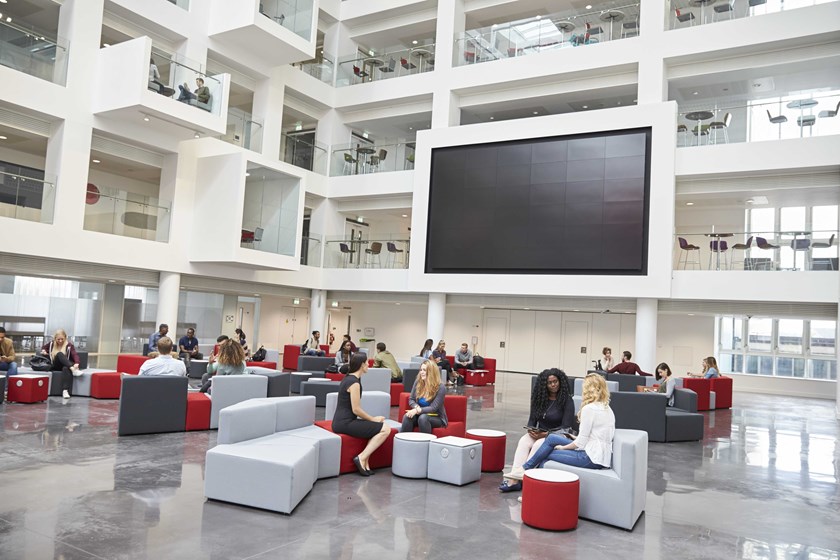Hiring out your sports facilities – the VAT implications
News

St Andrew's College Bradfield (the College) is a charitable boarding school. It is registered for VAT and is the representative member of a VAT group, which includes its two wholly-owned subsidiaries, Bradfield College Developments Limited (Developments) and Bradfield College Enterprises Limited (Enterprises).
The College made its sports facilities available to the public from 1990 via Developments; this undertaking was transferred to Enterprises in 2009. HMRC rejected the College's claim for reimbursement of output tax that it (as the representative of the VAT Group) had paid, between November 2008 and August 2012, on supplies of sports-related services made by Developments and, later, Enterprises. The College appealed against this finding to the First Tier Tribunal (the FTT). After the FTT dismissed the College's appeal, the College appealed to the Upper Tribunal (the UT).
The issue under dispute
With certain exceptions that don’t apply here, the law exempts from VAT the supply by an "eligible body" of "services closely linked with and essential to sport". To qualify as an "eligible body", an organisation must be a "non-profit making body" which meets three criteria:
- it is precluded from distributing any profit it makes, or is only allowed to distribute profit to a non-profit making body;
- it applies any profits it makes only for one or both the following purposes –
(a) the continuance or improvement of facilities made available in connection with the making of the sports-related supplies;
(b) the purposes of a non-profit making body; and - it is not subject to commercial influence.
In determining whether point 2 is satisfied, the law disregards any profits that might be distributed to members when the organisation winds up.
There was no question that the College was an eligible body. The only dispute was over the status of Developments and Enterprises – the College maintained that they were eligible bodies; HMRC disagreed.
Facts
At all times, Developments and Enterprises were wholly-owned subsidiaries of the College, which never had any intention of selling its interest in them. During the claim period, the companies had standard Memorandum and Articles with objects that permitted them to carry on business for profit, with no prohibition on profit distribution. Although both companies sought to make a surplus, the sports business was never profitable, with Enterprises charging less than commercial providers offering similar services.
In 1998, both Developments and Enterprises entered into Deeds of Covenant with the College, in which they promised to pass their annual profits to the College. The Deeds were to run from 1998 until 2002 and "continue thereafter until determined by either party by written notice to the other". The FTT found no evidence that the companies entered into any new or substitute deeds or arrangements after the Finance Act 2000 relaxed the rules on Gift Aid, making Deeds of Covenant unnecessary. According to the accounts, the companies usually retained a small amount of profit each year, rather than passing everything to the College.
FTT's decision
Both parties relied on a 2002 case (Kennemer), in which the European Court of Justice was asked to decide the extent to which an organisation could make a surplus if it is to be classed as non-profit making.
The Court of Justice held that it is an organisation's aim that will determine whether it is non-profit making, with a non-profit making aim being one that is not that of achieving profits for its members. Whether or not an organisation pursues an aim of achieving profits for its members must be determined by reference to the objects in its constitution and in light of the specific facts of the case. The mere fact that an organisation seeks to make a surplus will not necessarily prevent it from being non-profit making.
The College argued that Developments and Enterprises should be regarded as non-profit making bodies despite having general commercial objects and not being constitutionally prohibited from distributing their profits. It argued that, according to the legislation, to qualify as an eligible body, an organisation need only meet two conditions. First, it must either (a) be permitted only to distribute its profits to another non-profit making body, or (b) be limited to distributing profits on winding-up. Secondly, profits from the supplies must be ploughed back into the business to improve the ervices or applied for the purposes of a non-profit making body. During the claim period, both Developments and Enterprises were wholly-owned by the College, and obliged under their Deeds of Covenant to pass their profits to the College, which is a non-profit making body. As a result, the two companies met the two statutory conditions. It argued that the small amounts of profit retained by the companies should be disregarded as they were negligible sums which were, in any event, only available for distribution to the College.
The FTT rejected this interpretation. To be an eligible body, an organisation must first of all be a 'non-profit making body'. The guidance in Kennemer made it clear that the aims and constitution of a body were crucial in determining this, even though its activities also had to be considered.
Although Enterprises and Developments had operated in a (more or less) non-profit making manner throughout the claim period, they were not non-profit making bodies. They both had general commercial aims and were not subject to constitutional prohibitions on distribution to members. Although wholly-owned by the College at all times, there was nothing to prevent the College from disposing of its interest to private organisations, and nothing the companies could have done to prevent it from doing so. Similarly, the existence of the Deeds of Covenant did not displace the need for the companies to have non-profit constitutions. In any event, the claim period began after 2002, when the companies could have terminated Deeds of Covenant at any time.
Since Enterprises and Developments were not non-profit making bodies, they were not eligible bodies. Consequently, their sports-related supplies were not exempt, and the College's appeal was dismissed.
Appeal to the UT
The College made several arguments, criticising the FTT's focus on the companies' constitutions. The UT rejected all of the College's objections. The requirement for specific prohibitions on a body's ability to distribute profits to anything other than a non-profit making body necessitated something more than a de facto prohibition that existed only because (and only for so long as) the sole member was such a body.
The UT dismissed the appeal.
Lessons
When it comes to VAT, providers sometimes have good reasons to want their supplies to be taxable. In this case, however, the College clearly felt it would be advantageous for the sports supplies to be exempt and took the view that, given that all (or at least almost all) the profit made by its subsidiaries would flow back to the College, the subsidiaries would qualify as non-profit "eligible bodies" for the purposes of VAT legislation. The College could still appeal, so we may not have seen the last of this case, but so far this view has proven incorrect.
It may be tempting to suggest that charitable schools wanting to use their sports facilities to make exempt supplies should simply run the sports businesses themselves, but – unsurprisingly – there is more to the legal picture than just VAT. There is also, for instance, the question of whether hiring out the sports facilities will further the school's charitable purposes. If it will not, then it may well be ultra vires.
VAT is a complex subject that we may not escape even after Britain leaves the EU. Schools would be wise to seek advice before embarking upon any project that might have a significant impact on its VAT position.
If you require any further information on anything covered in this briefing please contact Rachel Holmes ([email protected]) or your usual contact at the firm on 020 3375 7000.
This publication is a general summary of the law. It should not replace legal advice tailored to your specific circumstances.
© Farrer & Co LLP, January 2017







